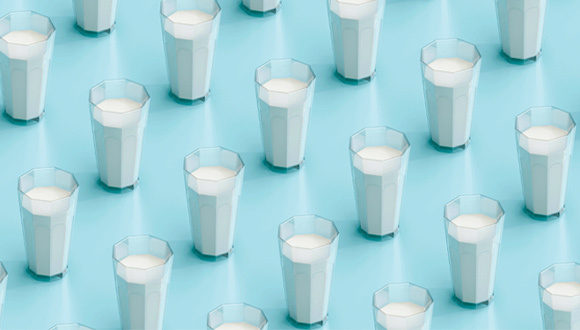Oat Milk Vs. Almond Milk (Plus, All the Others In Between): Which Milk Is the Healthiest?
Dec. 14, 2021 - Katie McCallumThe most controversial part of "got milk" used to be whether you should be drinking whole or fat free. But our milk options have expanded significantly since then.
From soy to almond to oat — and even pea-based varieties — non-dairy milk alternatives are more popular and plentiful than ever. But that can make for confusion about which is actually the healthiest.
Do non-dairy milk options, also referred to as milk alternatives or plant-based milks, really come with the same health benefits as cow's milk? And are some milk alternatives healthier than others? Plus, was there anything wrong with dairy milk to begin with?
"If you ask me which milk is best, I will say it depends!" says Amanda Beaver, wellness dietitian at Houston Methodist. "They each have their own nutritional nuances. It's important to know the general differences and carefully read nutrition labels."
Which is the healthiest milk?
Whether it's going into your coffee, cereal, oatmeal, smoothie or a glass by itself, which type of milk is best for you?
"There's no milk variety that I would say is healthiest," says Beaver. "Which is best for you depends on your diet, your nutrition goals and what you're using milk for. I keep several types in my fridge and use each differently."
For instance, Beaver says she uses a splash of oat milk in her iced coffee and keeps calcium-fortified almond milk in her fridge to have with dinner.
However, Beaver does have a few tips for those who prefer a plant-based milk:
- Choose one that has no added sugar or is labeled as "unsweetened"
- Make sure it's fortified with calcium
- Shake very well before pouring
"One of the most important things to know about plant-based milks is that the fortified vitamins and minerals fall out of solution and settle to the bottom of the container. They must be resuspended before pouring," says Beaver. "If you're not vigorously shaking a milk alternative, you're not getting all of the calcium and minerals listed on the label."
Does almond milk have calcium?
"With almond milk being one of the more popular milk alternatives, I'm asked whether almond milk is a good source of calcium quite often," says Beaver. "Some organic brands aren't fortified with it, so be sure to check the label and get your calcium through other foods if needed. Better yet, be sure to choose an almond milk brand that is fortified with calcium."
And people who really need to be sure they're getting enough calcium in their diet, such as those with osteoporosis, may need to be even more conscious of almond milk and other milk alternatives.
"We know from studies of dairy milk that about 30% of the calcium is absorbed by the body," explains Beaver. "With milk alternatives, we unfortunately don't know much about how much calcium gets absorbed."
This is why it might be better for someone with osteoporosis to choose dairy milk over a plant-based alternative until we have more research. Or, at the very least, take the "shake well" instructions very seriously.
Which type of milk has the most protein?
Whether you're vegetarian, vegan or just someone who takes muscle recovery very seriously, you might be wondering which milk has the most protein.
"Dairy milk not only has more protein than plant-based alternatives, but the protein it contains is higher quality," says Beaver. "And ultra-filtered dairy milk contains even more high quality protein than regular milk."
If you prefer a milk alternative to dairy, soy milk is a good protein-forward option since the protein it contains is also high quality. Pea-based milk is another milk alternative with a good natural protein content.
"Whatever you do, don't assume almond milk and oat milk are good sources of protein," warns Beaver. "Almond milk and oat milk typically contain only very small amounts of it."








